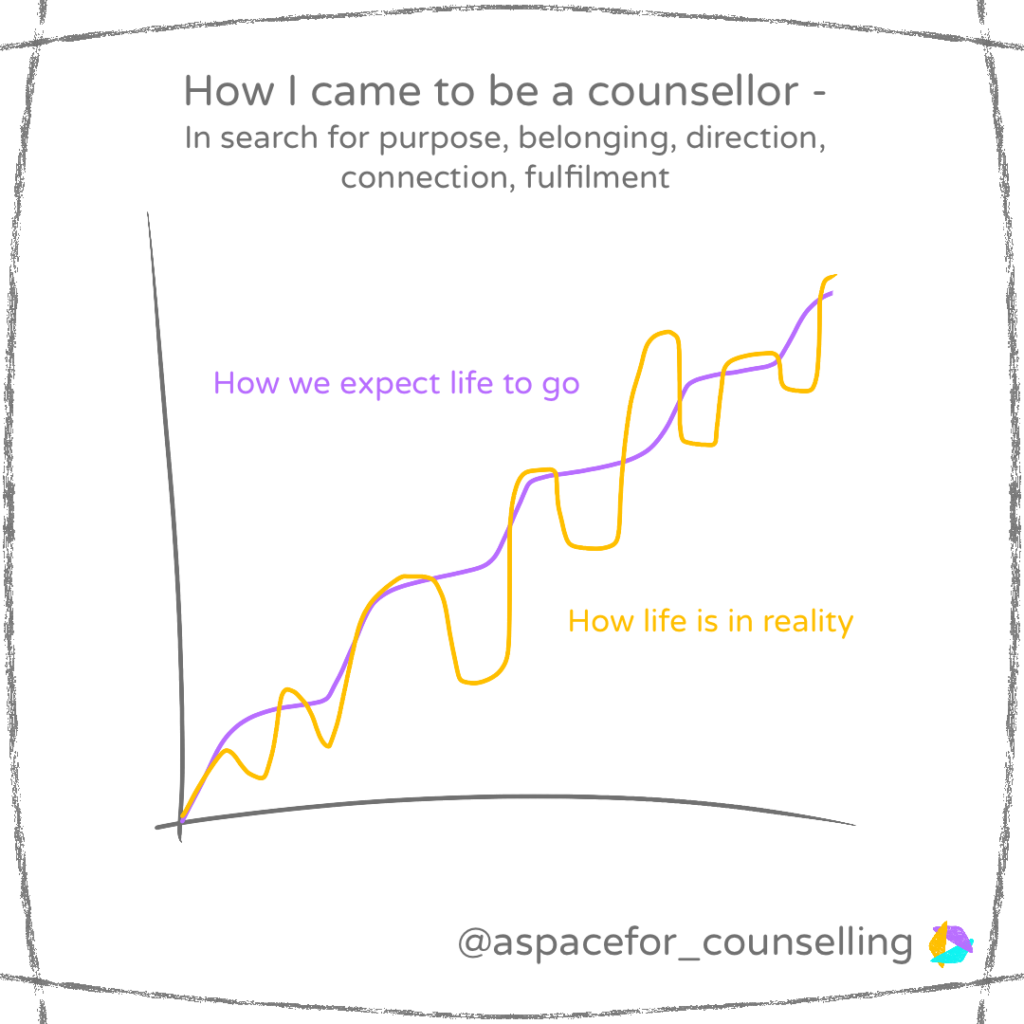The counselling relationship is a skewed dynamic in that I, as the counsellor, ask clients to open up to me, to be vulnerable with their fears and anxieties. In some cases, knowing nothing at all about me, might be beneficial and freeing. However, for those who liked to know a bit more about my life experiences and how that has shaped how I work, this is for you.
I have what you can accurately call a zigzaggy career. Some come to counselling as a second career but I don’t think my first career ever started. However, looking back there are some themes throughout my studies and jobs – a desire to be helpful, to reduce suffering, and be better as a person in general. It took me until my early 30s to fully recognise the overlap between what I am good at and what I enjoy, and how I could turn that into a career. Since high school, as much as I tried to have a plan and a direction, I just didn’t have resources to be exposed to the range of possibilities, to fully grasp what I could do. I changed degrees, universities, took on jobs just to earn money, experienced redundancies, and a constant feeling of ‘this is okay, but not it’.
Similarly in my personal life, there were more twists and heartbreaks than I would have liked. No one wishes for these things; nor the time wasted and time lost to tending wounds. From betrayals, to disappointments, and absolute devastation, all this first-person suffering contributed to a colourful empathy jar.

My counselling journey started with a blank canvas. I went cold turkey and quit a full time job, with £1000 in savings, to give myself a chance at figuring out ‘what-to-do-with-my-life’. I’d spent months going from ‘this is okay, but not it’ to ‘this is not at all okay’, and ended up crying from work stress on a far to regular basis. I had the luxury to quit with the savings I had and so I gave myself the headspace to figure out a new path. After months of volunteering in different areas (from helpline work to creating lunches in a mental health cafe), I spotted a certificate course in counselling skills at a local college, an evening course, that I could fit in around future paid work. Whatever I was to do, it would involve people, so why not learn how to listen better? This later turned into a diploma course, juggling part-time work, studies, placement hours, and life’s ups and downs.
One of the key learnings through training is determining what is yours and what is the client’s. We do an immense amount of personal work to hone our empathic ability. Our life experiences (what I call my empathy jar) cue us as to what might be going on for a client, but we have to be careful to not assume entirely. I can predict some of the potential challenges that someone might have coming out of a long-term relationship, but I’m not my client, and I wasn’t in that exact relationship, so it will be different. As I’ve gained more experiences by proxy through clients, I’ve developed a more nuanced vocabulary of the range of feelings and thoughts that might come with different experiences. This allows me to make ‘experienced’ guesses, helping the client to articulate their story, perhaps with a template of words I offer, and then eventually words of their own choosing. Only by naming and identifying what we think and feel can we then choose what to do with it, otherwise it risks hovering around in our blindspots, out-of-reach. I know that feeling of disconnect, of feeling unsettled and afloat. It might take a long while, and it will be bumpy, but I have faith that is possible to find anchors and redirect ourselves.
